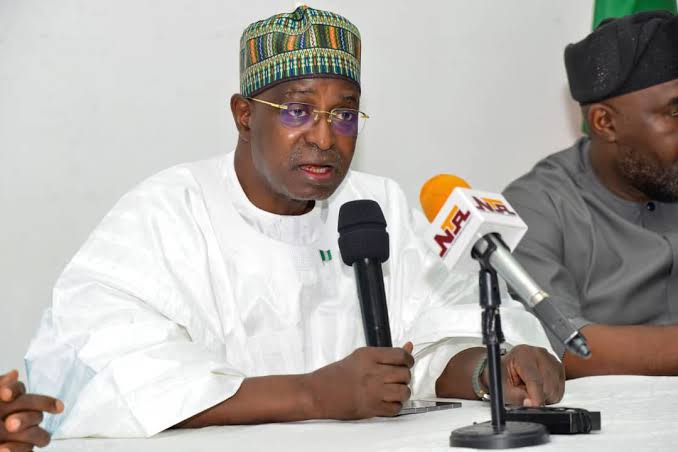361
By Daniel Adaji
The Minister of Livestock Development, Idi Maiha, says pasture development is central to ending herder-farmer conflicts, boosting livestock productivity, and modernizing animal husbandry in Nigeria.
Speaking at the National Pasture Planting Day on Tuesday at Kawu Grazing Reserve in Bwari Area Council, Federal Capital Territory, Maiha described the event as more than planting grass.
“Today marks not just the planting of seeds in the soil, but the sowing of a vision for resuscitation of our grazing reserves, sustainable livestock development, environmental stewardship, peaceful pastoral practices, and economic empowerment for millions of Nigerians who depend on livestock for their livelihoods,” he said.
Maiha said grazing reserves such as Kawu are “not merely patches of land, but hubs of opportunity—for pasture and crop production, breed improvement, animal health improvement through efficient veterinary services, conflict mitigation, youth employment, women empowerment via organized milk production and sale system and food security.”
The minister stated that the National Pasture Planting Day is part of a renewed national strategy to modernize livestock production through sustainable pasture and fodder models that benefit both pastoralists and farmers while protecting the environment.
He identified the shortage of quality and sustainable fodder as “one of the greatest challenges facing livestock development today,” which has led to malnourished animals, reduced productivity, and persistent conflicts between herders and farmers.
To address this, Maiha said the National Pasture Development Programme is releasing and registering new pasture varieties into the national seed system—eight have already been introduced this year—while also training herders and extension officers, establishing pasture seed banks and feedlots, building irrigation and water harvesting systems, and partnering with universities, the National Animal Production Research Institute (NAPRI), and international agencies to develop high-yield, drought-tolerant pasture species.
“Today’s planting activity is symbolic of a larger national effort to improve animal nutrition, boost meat and dairy production, and transition to climate-smart livestock systems,” he added.
The minister urged broad cooperation from all stakeholders. He called on state and local governments to identify and support viable grazing lands; appealed to the private sector to invest in pasture commercialization; encouraged pastoral communities to embrace innovation and peaceful coexistence; sought technical and financial support from development partners and NGOs; and urged traditional and religious leaders to mediate disputes and build trust.
Maiha reaffirmed that the Federal Government is committed to fully implementing the National Livestock Acceleration Growth Strategy (NL-GAS), already approved by the National Economic Council, alongside other policies aimed at “peace, productivity, and prosperity in our livestock sector.”
“As we plant these grasses today, let it serve as a symbol of hope—that we are nurturing a future where cattle do not need to wander hundreds of kilometers in search of food and water,” he said.
“Let it mark the beginning of a new era, where our grazing reserves are not just places of grass, but centers of excellence in animal husbandry and veterinary services, where young people can find jobs, where herders and farmers live in harmony, and where Nigeria becomes self-sufficient in livestock production,” he added.
He commended the people of Kawu, Bwari Area Council, the FCT Administration, and other partners for making the event a success.
“Let us water these seeds with unity, nurture them with innovation, and harvest from them the peace and prosperity our nation deserves,” he stated.



